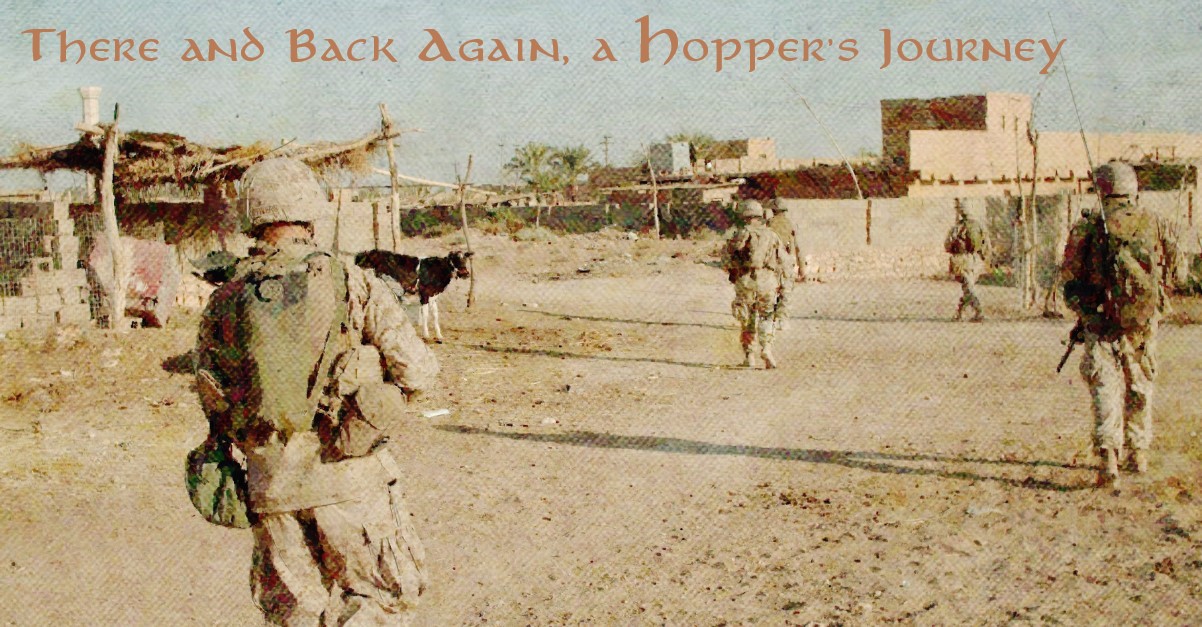
“I need to get help.” Truthfully, I was concerned with admitting this to my command, but they were extremely supportive at that time. They told me do what I needed to do, so I scheduled an appointment with a military therapist at the Naval Hospital, Camp Pendleton. Since I had gotten back from my deployment, I knew something was off. My 3 small children were all under the age of 5. My wife had struggled with post-partum depression since the birth of our third child, and I deployed a few months after her birth. Coming back from the chaos of a combat deployment, you would think that I was prepared for the chaos of home life. It was not the case.
I was angry all the time. Angry about messes in the house. Angry about the chaos. I tried to bring some semblance of order to it all, but just ended up lashing out at my family and children. I knew something had to be done, and I knew it wasn’t their fault that I felt this way; I just had no idea why I felt this way, or what to do about it. I knew I needed help.
As I walked into the therapist’s office I had high hopes. Hopes that they would be able to explain to me what was going on, and why I was so angry all the time. I walked in, sat down in a chair, and began talking with the therapist. I told her everything that had been going on since I got back. That for some reason, I kept taking out my frustrations on my family, for simple things they did, that weren’t even their fault-that it wasn’t even an issue of fault, but I couldn’t get past that, and I didn’t know why I was so mad at them for everything.
The first thing I remember the therapist saying to me was “It’s not their fault. Stop blaming them.” I was a bit puzzled. I had just spent the last 5 minutes telling her that I knew it wasn’t their fault. The fault was mine, but I didn’t understand why I was so mad at them. Maybe I wasn’t clear? I decided to remind her that I knew it wasn’t their fault. “Look, I know it’s not their fault, it’s mine…but I don’t know what’s going on, and why I’m so mad at them now.”
There, that should clear things up. Maybe I just wasn’t direct enough? I sat back in the chair, and waited for her next response. “You need to stop blaming your family for your problems. It’s not their fault.” ??? Now I was starting to get a little frustrated. I knew the fault didn’t lie with my family, I just didn’t understand why I was so mad at them for doing the same thing they always did. I needed help trying to adjust to life as it was now, with whatever this anger thing was… Maybe I needed to try again and explain myself even clearer. So I did. Or at least I thought I did.
Her next response removed any semblance of me trying to remain calm. “Look, I’ve told you it’s not your family’s fault, so you need to stop being mad at them. It sounds like you have anger issues.” Oh, so I’ve got anger issues. That’s all it is. I’m blaming my family because of my anger issues. Because this never happened before my deployment, so what’s different now? Alright. She says I have anger issues. Fine. I’ll let her know in no uncertain terms how my anger issues play out. “Thanks. You’ve been absolutely no help whatsoever. I came to you asking for help, told you I was angry and taking it out on my family now for some reason that I don’t understand, and the ONLY thing you can tell me is that it’s not their fault, it’s mine, so stop taking it out on them. Glad we cleared this up. Don’t worry, I won’t ever be back, so I won’t waste anymore of your time, and you won’t waste any of mine.” To which I got up, walked out of her office, and never looked back.
I was young then. 23-25 year old Marine Corps Sergeant. PTSD was just a 4 letter word, if that back then. No one really addressed it in depth at that point, so I didn’t know what it was. I didn’t know how it worked or why it worked, and I didn’t understand how it would effect me over the course of the next couple decades. We fear the unknown. PTSD was unknown to me then, and I was afraid of it. Since I had it, and was living with it, I lived a life with fear. Fear that I would lose control at the wrong time. Fear that my anger issues (since that’s what they were according to that therapist) would affect me adversely. Fear that I wouldn’t be able to get back to Iraq where I felt safe, and comfortable. Even to this day, I still feel more at home the more dangerous the situation is to life and limb, than when I’m just sitting at home, sipping a cup of coffee surrounded by the peaceful solitude of my homestead. It would be years before I ever tried to reach out for help again.
NEXT: Hopper’s Journey Part III >
Deacon Channing Fell
January 26, 2022 01:24Yes, how does one renter the reality of home life? When you see how perilous and hopeless our family life is, we just mouth the platitudes and talk about the most useless things as if they are most important.
P.J. Hughes
January 18, 2022 09:11So good & so true… Thank You my friend… Here,,, grab my hand and I’ll grab yours.